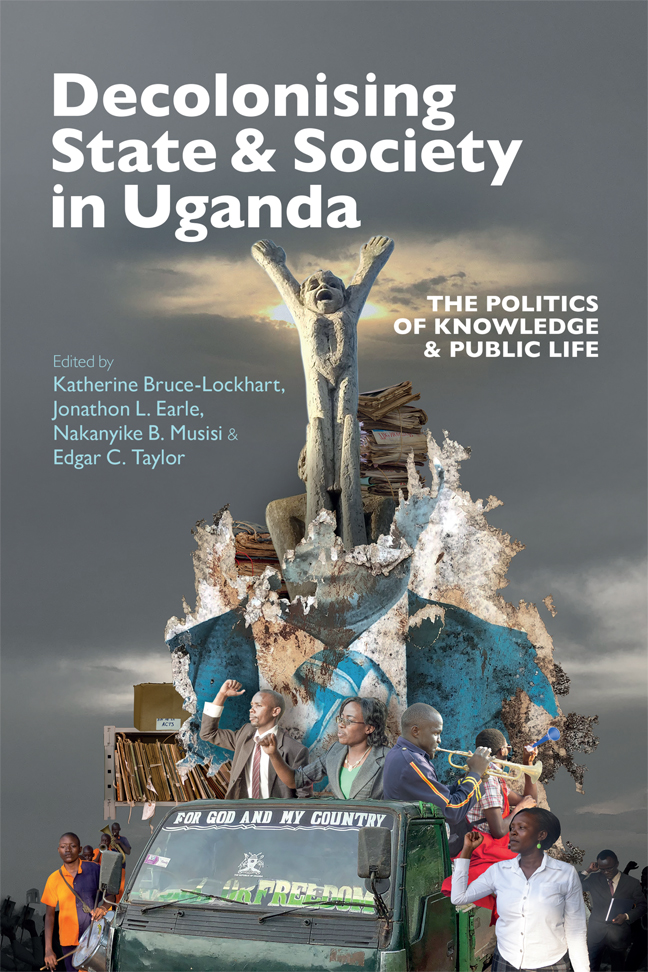11 - Repudiating a Liberal Framework for Political Accountability: The Politics of the Whole versus the Politics of the Party in Uganda in the 1940s
Published online by Cambridge University Press: 15 February 2024
Summary
An effort to decolonise knowledge in Uganda has to begin with fundamental premises regarding political power. By assuming and looking for dominating power, people have made invisible a kind of power that is unlocked by a group, a ‘power with’ instead of ‘power over’. To see this power, we have to recognise and remove multiple frames that organise our thought – not only colonial, but also Eurocentric and patriarchal – which imply that leading is active and being led is passive. We have to infuse followership with meaning. Political accountability built on assent looks different from that built on dissent. Once we have recognised that colonised knowledge imposes on Uganda a political philosophy premised on conflict, it is imperative to develop a methodology for actually decolonising knowledge. We have to read carefully, interrogate evidence, and see change that colonial categories make invisible. Recognising assent as a potent political strategy reveals hitherto unacknowledged intentions and aspirations in the key events of the 1940s, allows a fuller interpretation of the archival record of the late colonial period, and undermines the myth of Buganda exceptionalism.
Looking closely at the long history of societies in eastern Africa, there is a logic of collective endeavour, of the power of participation, which begins with our earliest opportunities to observe, and continues – in changing forms – over time. In ancient eastern Africa, being ruled did not mean quietly accepting and obeying whatever powerful people decreed, and it did not mean participation for narrow, instrumental ends. Using the sources that allow historians to look into the deep African past, we can see a set of strategies that the peoples who now live in Uganda used to create functional polities over a great time depth. People sought to create calm, harmonious good government through at least three strategies. They actively demonstrated assent through being present in gatherings which constituted and affirmed the polity, they contributed to the hearing of cases and decision making through speaking in councils and in the hearing of cases, and they helped to compose groups which combined diverse elements through giving valuable gifts. These strategies are visible in oral traditions regarding the emergence of kingdoms around 500 years ago, and in peoples’ memories of how they responded to kings who ruled badly.
- Type
- Chapter
- Information
- Decolonising State and Society in UgandaThe Politics of Knowledge and Public Life, pp. 247 - 268Publisher: Boydell & BrewerPrint publication year: 2022



